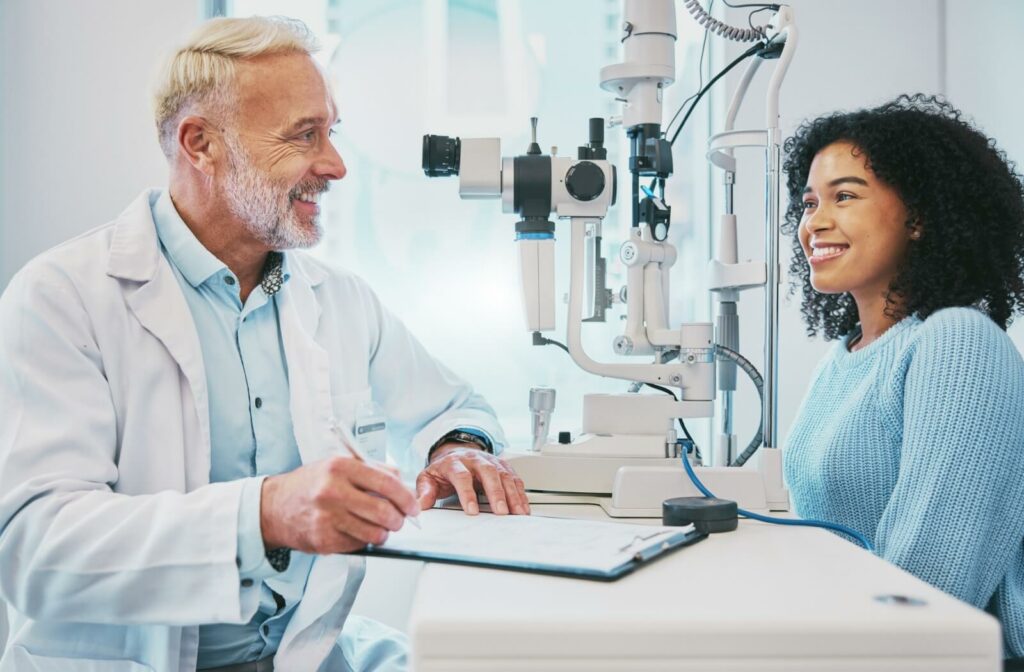All Categories
Featured
Table of Contents

Normal eye examinations are vital for keeping great vision and discovering possible eye wellness issues early. Nevertheless, the frequency of these exams can vary significantly based upon an individual's age, way of living, and total health and wellness. Comprehending the advised schedule for eye examinations can help make sure that people of every ages obtain suitable treatment and tracking for their eye health and wellness.
Infants and Toddlers (0-2 Years)
For infants and kids, eye examinations are important for finding any type of possible vision problems beforehand. The American Academy of Ophthalmology suggests that a youngster's first eye examination need to take place at around 6 months of age. Throughout this initial go to, the eye care professional will certainly analyze the kid's aesthetic development and look for any type of apparent eye concerns.Following this initial exam, it is advised that youngsters have one more eye test at age 3. This visit will certainly concentrate on analyzing the youngster's general aesthetic feature, consisting of eye alignment and the capability to track items. If no concerns are detected, the next examination must be scheduled prior to the kid begins college, normally around age five or 6.
School-Aged Youngsters (6-18 Years)
Once children reach college age, routine eye tests need to be arranged every one to two years. Vision is important for discovering and development, and several colleges conduct vision screenings. These screenings do not change a comprehensive eye examination by an eye care professional.For youngsters included in sporting activities or activities needing considerable aesthetic emphasis, annual eye examinations might be recommended. In addition, if a child shows signs of vision troubles-- such as problem checking out, scrunching up your eyes, or constant frustrations-- a browse through to the eye medical professional need to be set up immediately.
Youthful Adults (19-39 Years)
Youthful adults typically have fewer vision adjustments than older age, however normal eye tests stay vital. The basic recommendation is to set up an eye exam every 2 years throughout this period. Nonetheless, individuals with certain danger elements-- such as a family members history of eye condition, diabetic issues, or those who use get in touch with lenses-- need to take into consideration yearly eye tests.Additionally, those who invest substantial time on electronic gadgets might experience electronic eye strain. If signs such as dryness, tiredness, or blurred vision take place, it may be important to see an eye care expert sooner.
Grownups (40-64 Years)
As people go into center age, the likelihood of establishing vision issues boosts. Adults aged 40 to 64 need to schedule eye tests each to 2 years. This age might begin to experience presbyopia, an all-natural age-related problem that makes it challenging to focus on close objects. Eye exams can also help detect various other common age-related problems such as glaucoma, cataracts, and macular deterioration.If individuals in this age team have risk aspects such as high blood stress or diabetic issues, they may need even more frequent assessments to monitor their eye health closely.
Seniors (65 Years and Older)
For elders, normal eye examinations become a lot more important. The American Optometric Organization suggests that individuals aged 65 and older have an eye exam a minimum of as soon as a year. Older adults are at a higher danger for numerous eye diseases, consisting of cataracts, glaucoma, and age-related macular deterioration. Early detection and therapy of these problems can avoid vision loss and boost the lifestyle.Verdict.
Recognizing the proper schedule for eye exams based on age is vital for preserving ideal eye health throughout life. By adhering to these guidelines and consulting with an eye care professional, individuals can take aggressive actions toward preserving their vision and general health and wellness.Table of Contents
Latest Posts
Indulge in In-Room Dining at The Claridge Hotel
Published Nov 23, 24
2 min read
Reliable Tinley Park Roofing Contractors – Expert Roofing Services by Aabel Roofing
Published Nov 23, 24
3 min read
The Environmental Benefits of Metal Roofing
Published Nov 23, 24
1 min read
More
Latest Posts
Indulge in In-Room Dining at The Claridge Hotel
Published Nov 23, 24
2 min read
Reliable Tinley Park Roofing Contractors – Expert Roofing Services by Aabel Roofing
Published Nov 23, 24
3 min read
The Environmental Benefits of Metal Roofing
Published Nov 23, 24
1 min read